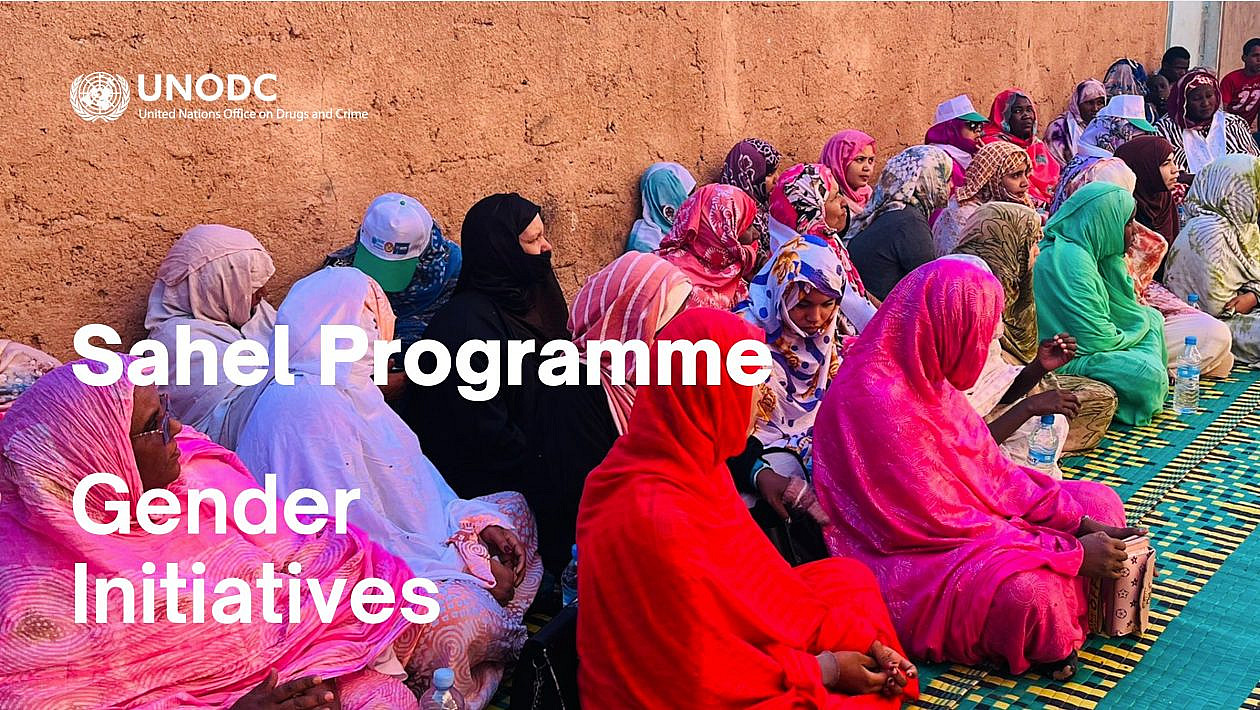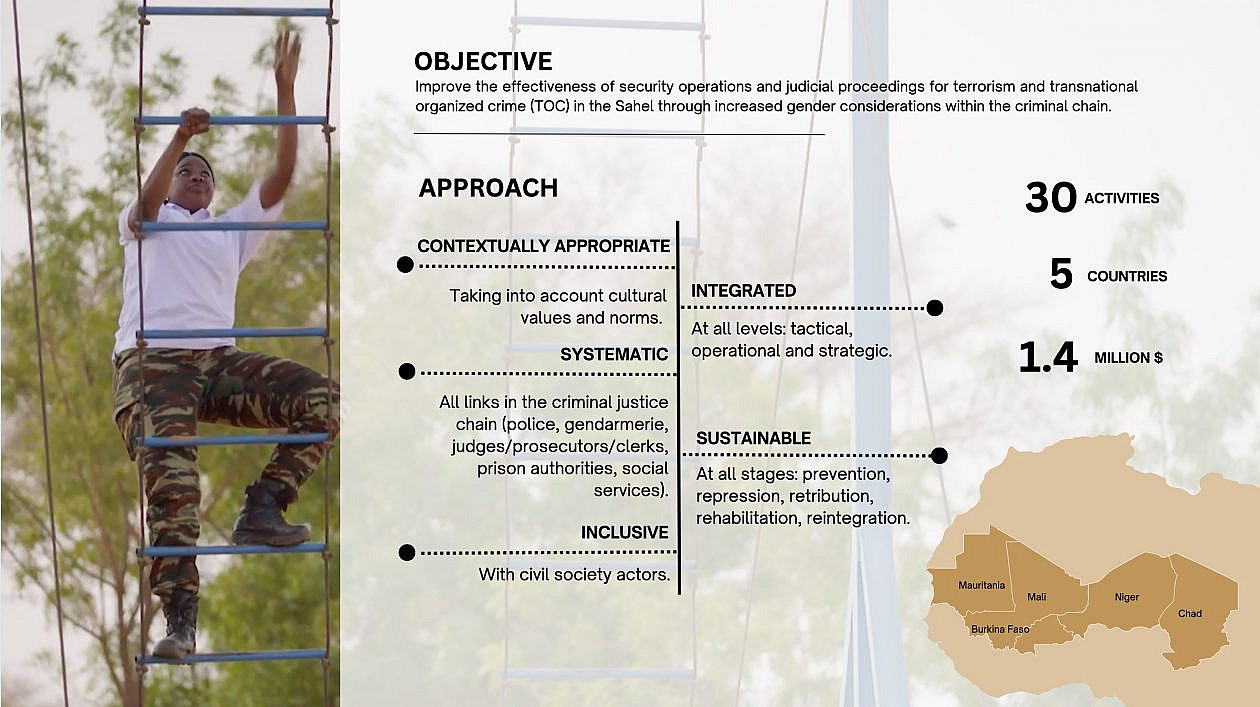A strategy to integrate gender in the security & justice sectors in the Sahel
Strengthening women’s participation in society is critical to build inclusive and equitable institutions capable of resolving conflicts in a peaceful way. The underrepresentation of women in the security and justice sectors in the Sahel deepens the trust deficit between the population and security and justice services. One of the missions of the UNODC Sahel Programme is to integrate gender in these sectors. Let’s find out how they do it.
The underrepresentation of women in the security and justice sectors affects strategies, operations, and especially the ability to understand and respond to the needs of communities, which is composed of 50% by women. This contributes to gender biased- and thus ineffective- responses and further deepens the trust deficit between the population and security and justice forces.
Therefore, creating gender diverse security and justice institutions is indispensable to fight more effectively against terrorism and organized crime in the Sahel and to provide access to justice and adequate protection to both women and men according to their specific needs.

A strategy to improve gender equality
Within the UN Regional Integrated Strategy for the Sahel (UNISS), the United Nations Office on Drugs and Crime (UNODC) Sahel Programme provides support for accessible, effective and accountable criminal justice systems to fight organized crime, terrorism and its financing, money laundering and corruption in the Sahel.
In line with UNODC Strategy for Gender Equality and Women´s Empowerment (2022-2026), the Sahel Programme promotes the integration of gender considerations throughout the criminal justice chain by:
- researching gender dynamics in transnational organized crime and terrorism;
- building capacities of criminal justice actors to integrate a gender approach;
- building gender-sensitive security services in the Sahel, including through the active participation of women in the prevention of and response to terrorism and organized crime.

Example of genre initiatives implemented by UNODC in the Sahel
Between 2019 and 2023, UNODC (United Nations Office on Drugs and Crime) has worked to strengthen women participation in the security and justice sectors through several initiatives, including:
- supporting the G5 Sahel to develop an action plan and a gender award;
- conducting studies on obstacles to women participation in security forces;
- developing a communication campaign #WhyNotMe (#PourquoiPasMoi);
- developing the first pipelines of women provosts in Niger and Mali;
- supporting the establishment of a network of women religious leaders, called Mourchidates to counter violent extremism narrative in Mauritania.
To highlight these initiatives, UNODC and UNWOMEN organized on March 13th 2023 a Ministerial side event to the 67th Commission on the Status of Women: “Breaking barriers: innovative approaches for advancing gender equality in Sahel security and justice” under the auspices of the Niger, Mauritania, the African Union and the G5 Sahel.
Ministers in charge of gender from Mauritania, Niger, Burkina Faso and Chad, a representative of the G5 Sahel and the laureates of the G5 Sahel gender award discussed the obstacles and the opportunity for women participation in these sectors, for a more peaceful and developed Sahel.
These initiatives are developed in partnership with the G5 Sahel and other UN partners, and with the financial support of Denmark, the United Kingdom, Germany, and the UN Peace Building Fund.
Go further
- Brochure of UNODC Sahel Programme gender initiatives
- Video “Vas-y-fonce”, produced withing the campaign #WhyNotMe Niger and Burkina Faso
- Commission on the Status of Women (CSW) ministerial side event: in French – in English

